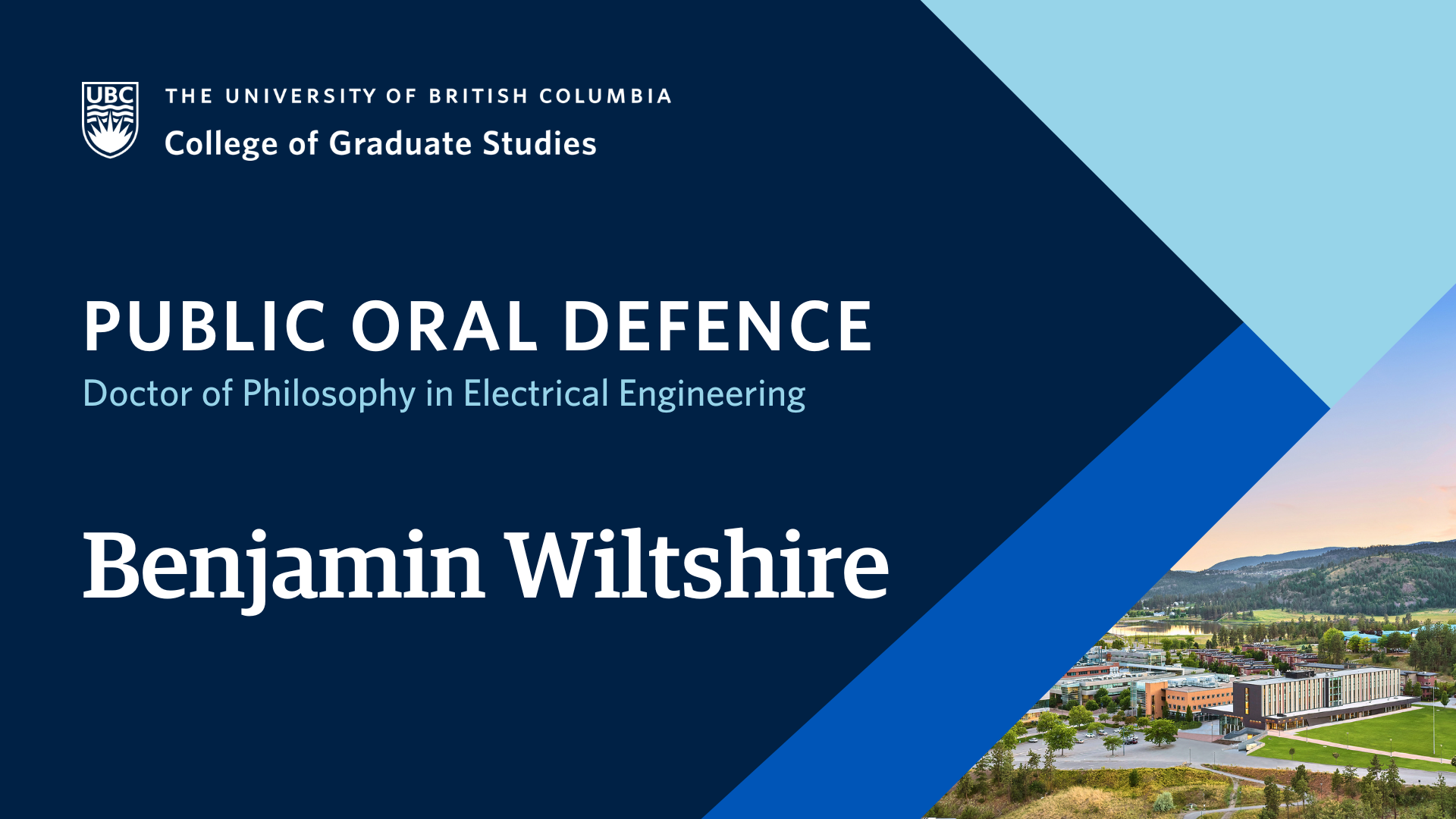
- This event has passed.
Dissertation Defence: Engineering Titanium Dioxide Nanotube Arrays to Enhance Microwave Sensing Capabilities
September 22, 2023 at 9:00 am - 1:00 pm

Benjamin Wiltshire, supervised by Dr. Mohammad Zarifi, will defend their dissertation titled “Engineering Titanium Dioxide Nanotube Arrays to Enhance Microwave Sensing Capabilities” in partial fulfillment of the requirements for the degree of Doctor of Philosophy in Electrical Engineering.
An abstract for Benjamin Wiltshire’s dissertation is included below.
Examinations are open to all members of the campus community as well as the general public. Please email mohammad.zarifi@ubc.ca to receive the Zoom link for this defence.
ABSTRACT
With the advent of smart sensors and the Internet of Things, improved real-time sensing and detection capabilities are required for modern applications. Microwave sensors were designed and integrated with titanium dioxide nanotube arrays for high-resolution detection of UV and visible light, as well as CO2 gas. Sensing was done by tracking the scattering parameter (S21) of a resonator as it varies with environmental changes such as material introduction, phase change, and chemical or light absorption. New microwave resonator designs were investigated through simulation, fabrication, and experiment to determine effective strategies in improving sensitivity, accuracy, speed, and lifetime in a variety of applications. First, the bare resonator was designed to better detect common hazards using differential designs, microfluidic channels, and temperature calibration. Next, by improving the model of the bare resonator, targeted integration with TiO2 as an additional intermediate sensing layer was developed to give the sensor sensitivity to stimuli beyond the detection limit of the bare resonator. Using design strategies, liquid characterization was performed at long range by detecting the UV transmission properties of the liquid. Similarly, a high frequency resonator was developed to detect UV intensities as low as 2.7 uW/cm2 by using an active resonator and reducing the effect of humidity by targeting a higher relative frequency. Additionally, TiO2 was later used as a supporting scaffold for a secondary material, cadmium sulfide, for visible light sensitivity and to enable selective targeted sensing. The aim of this thesis is to better understand the capabilities of TiO2 integration with microwave resonators by employing state-of-the-art nanofabrication methods and microwave design strategies to extend the limits of sensing in the microwave region.